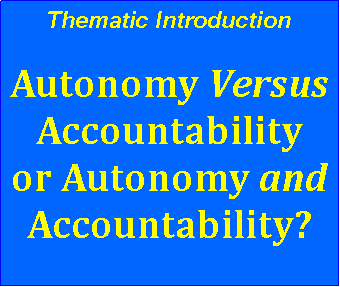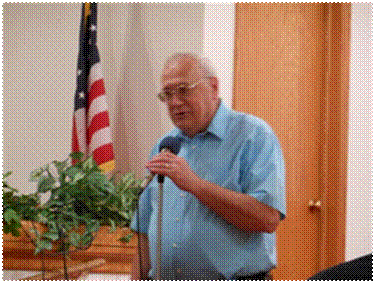
|
By Dave DeVoll Editor-in-Chief
|
|
This issue of Truth Matters is unique from our others, in that it is the result of a Study Retreat held April 1-2, 2013, at Locust Springs Retreat Center in Tennessee. The purpose was to examine the issues of the autonomy and accountability of ministers and congregations. Four papers were read and discussed at the Retreat, and a fifth one was added afterward—a “Summary and Report of Conclusions Drawn.” Those reports compose the bulk of the current issue. Several other items relative to our historical understanding of this truth have been included. It is the prayer of the Editors and Pastors’ Fellowship Steering Committee that this issue will contribute to the current discussion of this topic among us, and that it will contribute also to the unity God desires for His church.
The two words in our theme may seem to be contradictory. They are certainly in tension with each other. To set the tone, then, allow me to give the definitions that appear in The New Oxford American Dictionary. “Autonomy” is defined as “. . . the right or condition of self-government . . . freedom from external control or influence.” It derives from auto, which means “self” and nomos, which means “law.” The same dictionary identifies “accountability” as a derivative of “accountable,” which, when used “of a person, organization, or institution” means “required or expected to justify actions or decisions; responsible.” The issue, then, is whether autonomous congregations and ministers are also accountable, and to whom. Our Movement has struggled with this almost
from our birth. What have we historically meant by “autonomy”? Also, if we believe in accountability, to whom are ministers and congregations accountable, and how is accountability enforced? This issue attempts to answer these questions biblically and historically.
Warnings from Voices in the Past
For some years now we have had our General Missionary Boards, State Evangelistic Boards, Advisory Boards, etc. In some states now we are having Executive Secretaries, State Evangelists, or Supervisors to administer the work of these Boards over the wider fields. There is no chance that we will have less of these plans and arrangements for better administration in our work. Efficiency demands that we have more and better organization in our work and as the work moves forward we may expect this need to be filled. —T.E Howard, 1944
Are we in any danger of delegating too much authority or the wrong kind of authority to certain leaders? I feel there is a very real danger at this point. There can be no question that some men are now given authority that would not have been considered proper by the pioneers of this Movement. For many years this Movement has stood out strongly against anything that even faintly resembled the establishment of the kind of authority “bishops” exercise in denominations that follow the episcopal form of government. We were free from “babel’s lords.” That yoke was permanently denounced. Or was it? Everett I. Carver, 1968 The Church, the Body of Christ, p. 187
|
